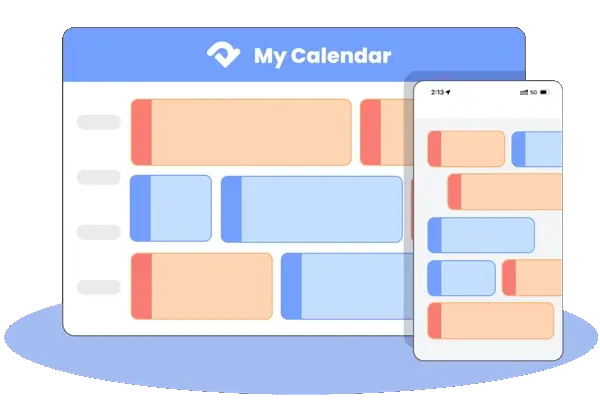In the modern travel landscape, the journey of a guest often begins with a single search. They might be dreaming of a beach getaway or a city break, and their first step is almost always online. For hotels, reaching these travelers is both an art and a science. That’s where Online Travel Agencies come in, shaping how millions of people discover and book their stays. This guide will walk you through what OTAs are, why they matter, and how to use them to your hotel’s advantage.
What is an Online Travel Agency (OTA)?
At its core, an Online Travel Agency is a digital marketplace for travel products. Think of it as a virtual storefront where travelers can browse, compare, and book everything from flights and car rentals to tours and, most importantly, hotel rooms. These platforms act as a middleman, connecting hoteliers with a global audience of potential guests.
Popular examples include Booking.com, Expedia, and Agoda. Each platform has its own unique style and market focus, but they all share the same goal: to simplify the booking process for the user while providing a vast selection of options. They earn revenue primarily through commissions on bookings, creating a powerful partnership with hotels.
Why Are OTAs Important for Hotels?
For any hotel, big or small, being seen is everything. You might have amazing rooms and great service, but if people don’t know you’re there, those beds stay empty. That’s why OTAs are so important – you really can’t live without them.
These sites give your hotel a level of exposure most places just can’t afford on their own. They spend billions on ads and getting their name out there, bringing millions of people to their websites every single day. When you list your hotel with them, you get to ride that wave of visitors. It’s like having a giant billboard in Times Square, but without the huge cost.
This visibility often leads to the “billboard effect.” Someone spots your hotel on an OTA, likes what they see, and then might skip the OTA and book straight with you – maybe to get a better price or learn more.
For a new hotel or one going it alone, an OTA can be a real lifeline. It makes people trust you right away and puts you in front of travelers all over the world from day one. This helps fill rooms and build your name. Yeah, you pay them a fee for each booking, but getting all those new guests who would have never found you otherwise? That’s usually worth it.
Types of OTAs
Not all OTAs work the same way. Each type does something different in the travel world. Knowing these types helps hotels pick the best sites to reach their guests.
1. Big Global OTAs
- These are huge sites that work across many countries
- They list tons of hotels, flights, and vacation deals
- Examples: Booking.com, Expedia, Agoda
- Great for hotels wanting to be seen by lots of people worldwide
2. Local OTAs
- Focus on one area or country
- Know what local travelers like
- Example: MakeMyTrip (India), Ctrip/Trip.com (China)
- Good for hotels wanting guests from nearby places
3. Special-Interest OTAs
- Aim at specific types of travelers
- Like:
• Fancy hotels (Mr & Mrs Smith)
• Green travel (eco-friendly stays)
• Adventure trips (hiking, diving, etc.)
4. Home Rental OTAs
- Focus on places like homes and apartments
- Not regular hotels
- Examples: Airbnb, Vrbo, Homestay
- For people who want to stay in a home instead of a hotel
This helps hotels pick the right sites to reach their guests.
How Do OTAs Work?
Hotels and Online Travel Agencies (OTAs) work together in a pretty straightforward way. It starts when a hotel signs up to show its rooms on an OTA site. They set up a page with good photos, room details, what they offer, and their rules .
Once that’s live, the hotel tells the OTA which rooms are open and what they cost. Hotels can change prices and room counts for different sites, or keep things the same everywhere . When someone books a room, the OTA handles the payment. Later, after the guest stays, the hotel pays the OTA a fee. This fee is usually between 10% and 30% of the room price. That’s the main way OTAs make money .
For guests, it’s easy. They pick where and when they want to stay, look at hotels, check reviews, and pay—all on the OTA site. After booking, the OTA sends the hotel the guest’s info so they can get ready . This simple process is why so many people use these sites to book trips .
The Pros and Cons of Using OTAs
Using Online Travel Agencies is a strategic decision for any hotel, and it comes with both significant benefits and notable drawbacks. It’s not a one-size-fits-all solution; it’s about weighing the costs against the rewards.
The Pros:
The most immediate benefit is the sheer volume of exposure. Without a massive marketing budget, it would be almost impossible to reach the same number of global travelers that OTAs do. They are masters of digital marketing, and your property gets to benefit from their expertise. They also act as an invaluable tool for filling rooms during low-demand seasons or last-minute gaps in your schedule. Having your rooms available on multiple platforms helps to capture every possible reservation.
The Cons:
The most obvious challenge is the commission fee. A significant portion of your revenue for each OTA booking goes to the platform, which can eat into your profit margins. Another major concern is the loss of control over the guest relationship. When a booking is made through a third party, the OTA controls the initial communication, and the guest’s loyalty is often to the Online Travel Agency, not to your specific brand. This can make it difficult to build a strong, direct connection that encourages future bookings. Hotels also have less control over the guest’s experience before they arrive, as all communication goes through the platform.
The Role of OTA Channel Managers
Managing listings on a few OTAs might be easy, but what if you’re using a dozen different platforms? Trying to track room rates and availability on each one by hand would be a huge headache. That’s where an OTA Channel Manager really helps .
A channel manager is a tool that links your property management system (PMS) to all your online sales channels. This includes your own website and every Online Travel Agency you work with. When someone books a room on one site, the channel manager immediately updates the availability on all other platforms right away .
This automatic system changes everything. It stops overbooking – which is a big problem for hotel owners – and makes sure your prices are the same and correct everywhere online. The time you save from not doing manual updates lets your staff focus on other important jobs, like making guests happier. It gives you one central place to manage all your online sales, making your work simpler and your business run better
Conclusion
In today’s world, most travel planning starts online, making Online Travel Agencies (OTAs) a key part of any hotel’s game plan. They give your property huge exposure and help you connect with travelers you’d otherwise miss. Sure, they come with downsides like high fees and less control over how your brand looks, but the upside is obvious .
The real secret isn’t deciding whether to use OTAs at all—it’s how you use them. Think of them as one powerful tool in your booking toolbox, alongside your own website and direct bookings. This way, you can tap into their massive audience while still building guest loyalty for the long haul. A smart plan that combines OTA reach with your own brand strength is the best way to run a profitable, successful hotel business .

